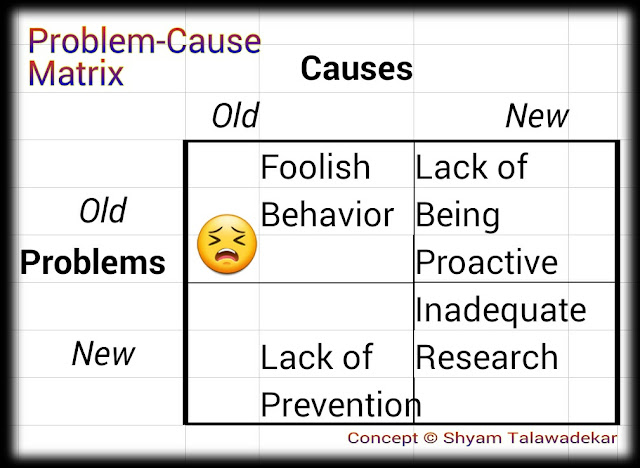"I feel relaxed there".
"I get peace there".
"I go there to connect to God".
Above kind of responses are not uncommon to a question "Why Do People Go To Temples".
Typically, someone goes to a temple.
Closes her eyes.
Meditates on (chants) a Mantra or a prayer.
Experiences that distractions disappear.
Actually meditation done there helps to concentrate on breath. Hence it becomes more rhythmic.
The resulting feel-good effect there helps to connect with one's inner 'self'.
Then why isn't the same phenomenon possible everywhere else other than the temple itself?
A reason may be we don't choose to make it possible at the place/s of our choice. Some make it impossible for their own selves to believe in doing so. We force it on our own selves to believe that the God¹ is present residing in the sculpted idol inside the temple. Or that the God¹ is in the stone neatly installed under a tree where people visit with flowers to worship.
In some cases the story might be that some saint had meditated there in past. So the story-teller begins worshipping the site at times for vested interests of playing politics or making business out of it. Story-teller's disciples continue it. Thereafter passer-bys join the queue and make it bigger. Eventually a temple gets constructed at the site. More the passer-bys, more the story-tellers! And more visitors get added to the passer-bys that leave their trails and tails.
Actually, some benefit does occur in the process. At least some people do visit such places with 'belief' and some with blind 'faith' though. But their good intentioned meditation (even that of a goon visiting) must be helping them clean up their auras that in turn must be leaving trails of positive energy at 'the site'. It is resonance of such positive energies that surely must be accelerating cleaning up of the aura of other visitors.
So, why do I visit such places although I do so rarely. I do visit them irrespective of their origin of place, caste, creed, nationality. It is for the benefit of the possibility of positive auras accumulated there.
But before exercising that option I do consider practising it at my current place of 'being' myself in real-time anytime for any amount of time without waiting for a Muhurta or an agent to advocate doing so.
Footnote:
1/ God I believe is some omnipresent subtle energy of highest nature and level. It chooses to manifest itself in various forms and shapes that an ordinary may be able to (but doesn't) see, touch and feel in the material world around and in the nature itself. God exists there-and-then in the form of 'that' helping person/soul when one gets or gives a Hearty-and/or-Soulful experience in a given moment or situation .
Also read a few relevant blogposts hereunder:
कधीतरी सापडेल का शोधता-शोधता ?
I am afraid ! What do I do !!
Fearful-Of-Death-of-Birth
Do you exercise your choice meaningfully
Do You Ask Right Questions ?
Overworked? Tension? CPU of the mind hung-up?
No Time? Micro-Meditate !
Talk In Order To Listen !
Eternally Happy !
What You See Isn't What's Made
Am I 'Short-sighted' or 'Long-sighted'?
Deity is in the eyes of the beholder
Forgive Or Don't?
Simplicity Of Theory Of Relativity
The Business Of Businesses
Experienced A Delightful Payment !
Beware Of Political-Presentations
 If you want to experience such an improvement culture then it's high time to be ruthless with self and ask:
If you want to experience such an improvement culture then it's high time to be ruthless with self and ask:




